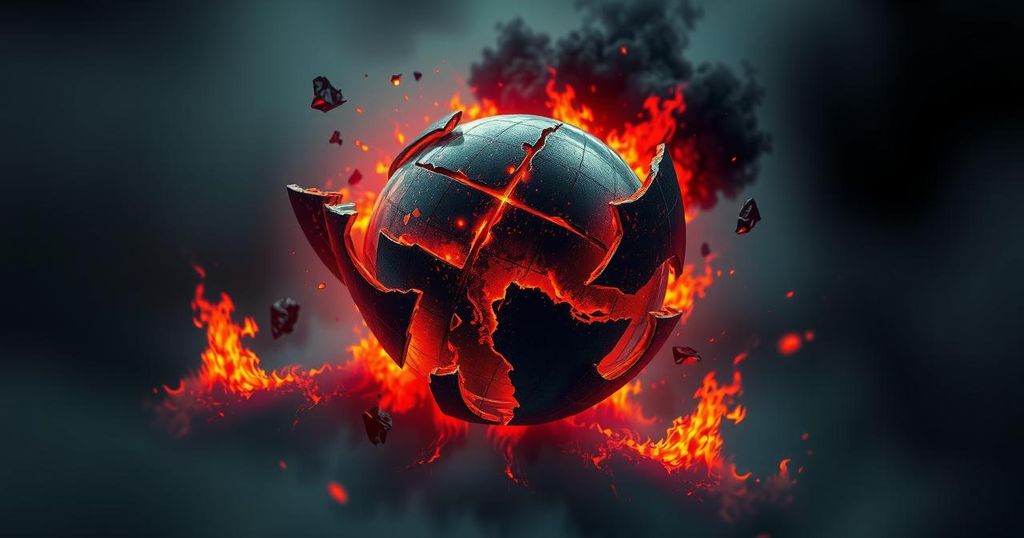In the Democratic Republic of Congo, protests erupted in Kinshasa targeting foreign embassies, driven by anger towards the U.S., France, and Rwanda for their roles in escalating violence linked to the M23 militia. Demonstrators attacked multiple embassies, underscoring the nation’s frustrations with foreign influence in domestic conflicts.
On Tuesday, the capital of the Democratic Republic of Congo, Kinshasa, witnessed a series of violent protests as demonstrators targeted several foreign embassies amid escalating tensions related to rebel violence in the eastern region. This unrest has been fueled by accusations directed at foreign powers, particularly the United States and France, for allegedly enabling Rwanda’s support of the M23 militia, which has intensified its offensive in the area.
Protesters besieged the U.S. Embassy, reportedly burning tires and hurling stones, while also breaching a construction site of a new embassy building. Fortunately, security measures were quickly re-established, and no injuries were reported. Concurrently, the French Embassy was set ablaze; French Foreign Minister Jean-Noël Barrot termed the attacks as “unacceptable,” although the fire was extinguished without further incidents.
In addition to the French Embassy, footage verified by The New York Times showed protesters looting and igniting a fire at the Ugandan Embassy, while the Belgian Embassy and the United Nations humanitarian office also faced assaults. U.N. officials described the atmosphere as one of “total chaos,” with staff urgently moved to secure locations. Furthermore, minor incidents occurred at the Rwandan Embassy, where a small fire was reported.
The escalating anger towards Congo’s foreign allies centers on their perceived inaction as the M23 militia launched assaults on strategic locations such as the city of Goma. This situation has led to a surge in public frustration over external influences in the conflict, highlighting the need for a reassessment of foreign involvement in the region.
The ongoing conflict in the Democratic Republic of Congo has deep historical roots, often intertwined with regional geopolitics and external affiliations. The M23 militia, which emerged in recent years, has been accused of receiving backing from Rwanda, prompting significant unrest within Congolese society. The tensions have escalated dramatically since the beginning of the week, leading to attacks on embassies as citizens express their discontent with foreign nations perceived to be complicit in the violence. The DRC has long struggled with rebel factions and the international community’s involvement, resulting in a complex web of alliances and hostilities. These protests symbolize a critical moment in which the Congolese populace feels powerless against the perceived negligence of powerful nations regarding their plight. Reactions from world powers offer insight into their diplomatic strategies and the challenges of peacekeeping efforts in the conflict-laden area.
In summary, the violent protests in Kinshasa reflect the growing frustration of citizens with foreign entities perceived to be fostering instability in the Democratic Republic of Congo. The assaults on embassies illustrate the depth of anger towards perceived complicity by countries like the United States and France in Rwanda’s support for the M23 militia. As tensions rise, the need for diplomatic engagement becomes increasingly urgent to restore peace and security in the region.
Original Source: www.nytimes.com







